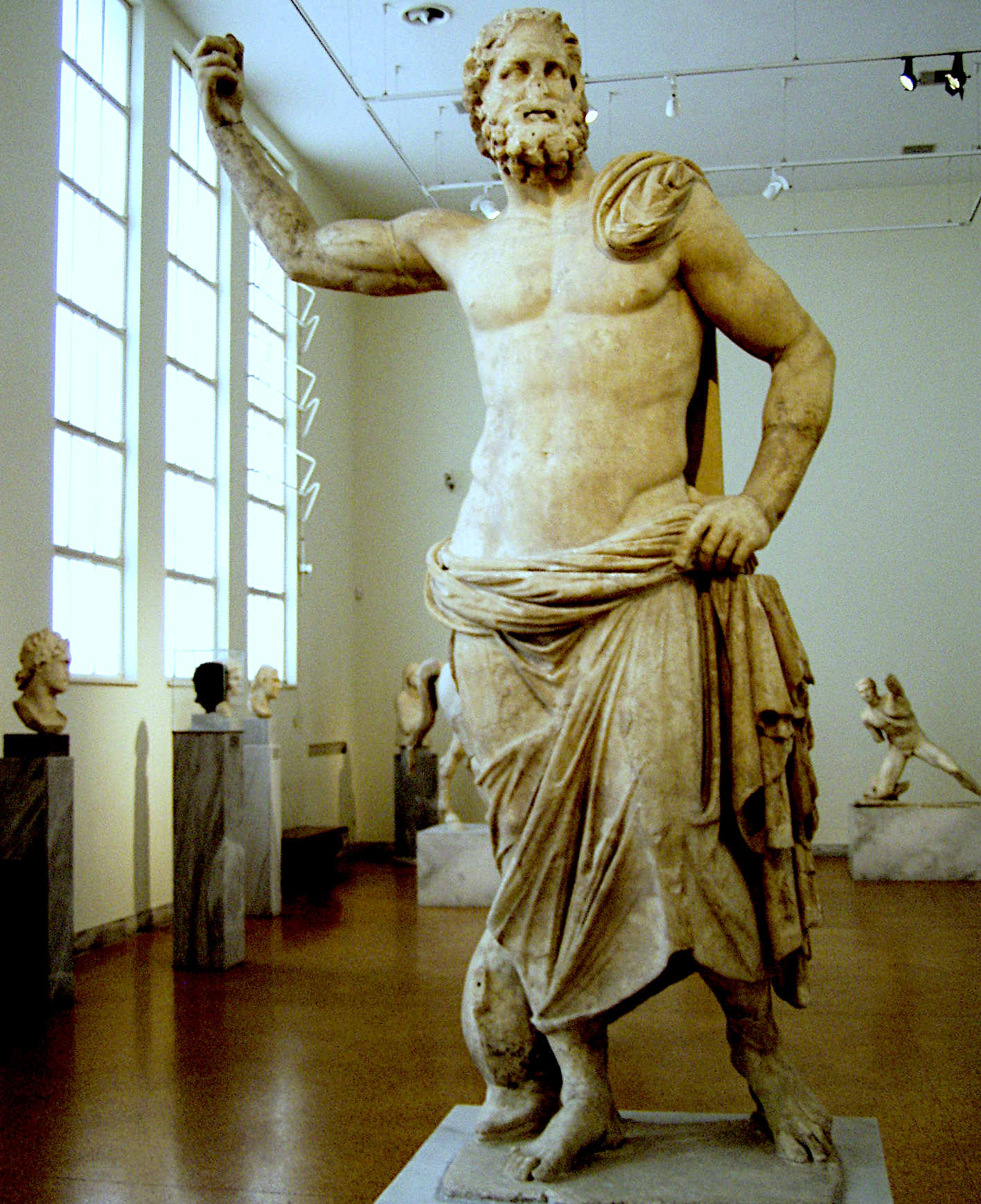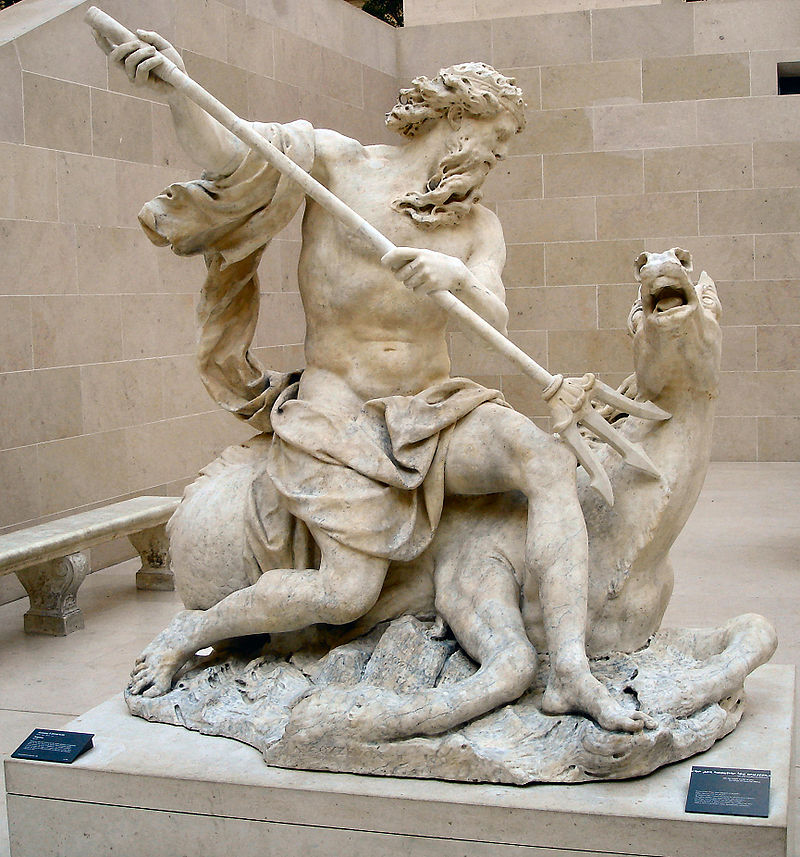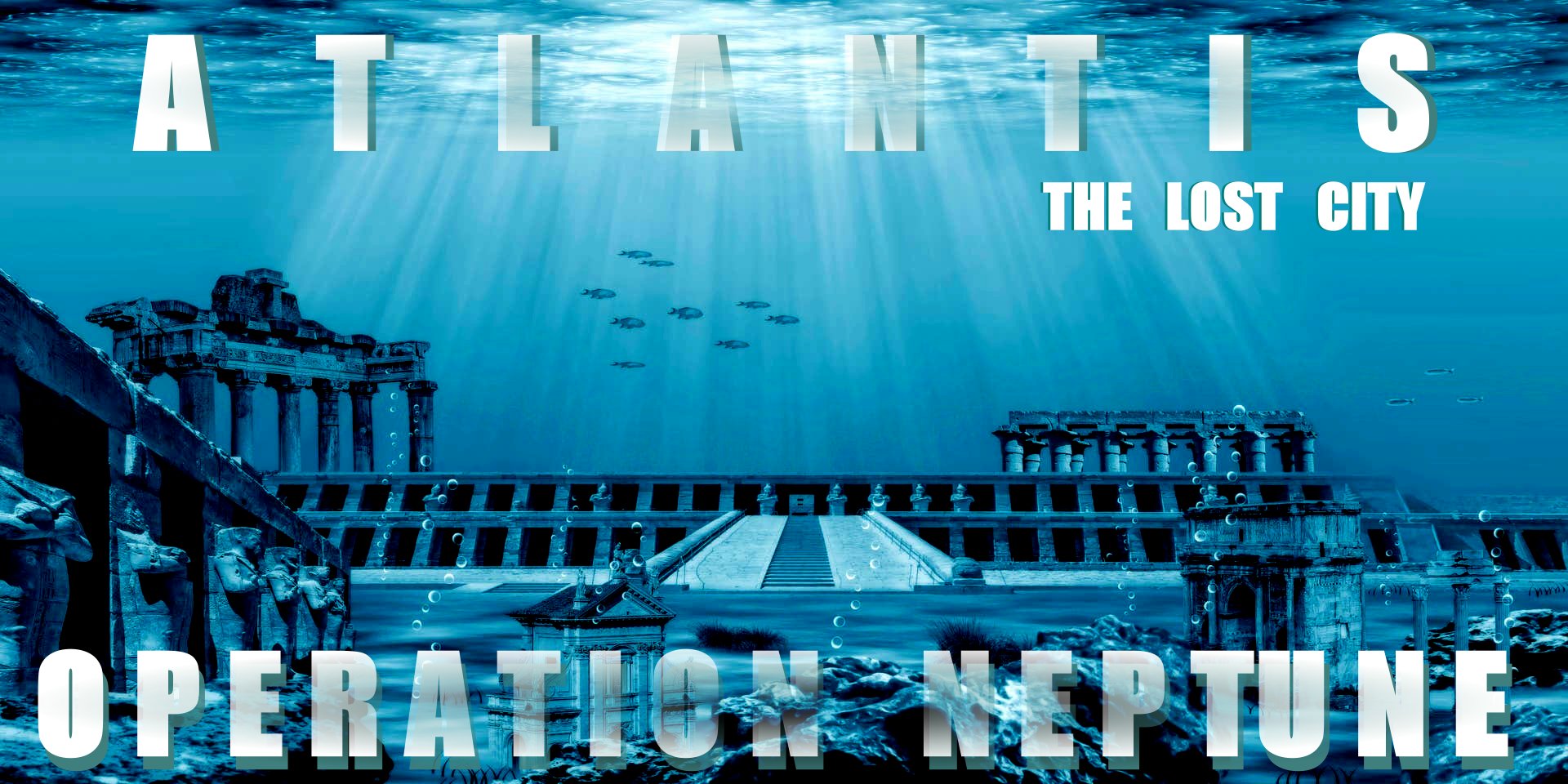|
POSEIDON -
GREEK GOD OF THE SEA
Poseidon
is the Greek god of the sea, storms and earthquakes. He was one of the Twelve Olympians in ancient Greek religion and mythology, presiding over the sea, storms, earthquakes and horses. He was the protector of seafarers and the guardian of many Hellenic cities and colonies. In pre-Olympian Bronze Age Greece, Poseidon was venerated as a chief deity at Pylos and Thebes, with the cult title "earth shaker"; in the myths of isolated Arcadia, he is related to Demeter and Persephone and was venerated as a horse, and as a god of the waters. Poseidon maintained both associations among most Greeks: He was regarded as the tamer or father of horses, who, with a strike of his trident, created springs (in the Greek language, the terms for both are related). His Roman equivalent is Neptune.
Homer and Hesiod suggest that Poseidon became lord of the sea when, following the overthrow of his father Cronus, the world was divided by lot among Cronus' three sons; Zeus was given the sky, Hades the underworld, and Poseidon the sea, with the Earth and Mount Olympus belonging to all three. In Homer's Iliad, Poseidon supports the Greeks against the Trojans during the Trojan War; in the Odyssey, during the sea-voyage from Troy back home to Ithaca, the Greek hero Odysseus provokes Poseidon's fury by blinding his son, the Cyclops Polyphemus, resulting in Poseidon punishing him with storms, causing the complete loss of his ship and companions, and delaying his return by ten years. Poseidon is also the subject of a Homeric hymn. In Plato's Timaeus and Critias, the legendary island of Atlantis was Poseidon's domain.
According to legend, Athena became the patron goddess of the city of Athens after a competition with Poseidon, though he remained on the Acropolis in the form of his surrogate, Erechtheus. After the fight, Poseidon sent a monstrous flood to the Attic plain to punish the Athenians for not choosing him.

POSEIDON
In art
Neptune appears as the Greek Poseidon, whose attributes are the trident and the dolphin.
These
mythological figures are sometimes entwined with Atlantis.
Poseidon was said to have had many lovers of both sexes (see expandable list below). His consort was Amphitrite, a nymph and ancient sea-goddess, daughter of Nereus and Doris. In one account, attributed to Eratosthenes, Poseidon wished to wed Amphitrite, but she fled from him and hid with Atlas. Poseidon sent out many to find her, and it was a dolphin who tracked her down. The dolphin persuaded Amphitrite to accept Poseidon as her husband, and eventually took charge of their wedding. Poseidon then put him among the stars as a reward for his good services. Oppian says that the dolphin betrayed Amphitrite's whereabouts to Poseidon, and he carried off Amphitrite against her will to marry her. Together they had a son named Triton, a merman.
Poseidon was the father of many heroes. He is thought to have fathered the famed Theseus. Poseidon also had an affair with Alope, his granddaughter through Cercyon, his son and King of Eleusis, begetting the Attic hero Hippothoon. Cercyon had his daughter buried alive but Poseidon turned her into the spring, Alope, near Eleusis.
A mortal woman named Cleito once lived on an isolated island; Poseidon fell in love with the human mortal and created a dwelling sanctuary at the top of a hill near the middle of the island and surrounded the dwelling with rings of water and land to protect her. She gave birth to five sets of twin boys; the firstborn, Atlas, became the first ruler of Atlantis.
Not all of Poseidon's children were human. His other children include Polyphemus (the Cyclops) and, finally, Alebion and Bergion and Otos and Ephialtae (the giants).
The philosopher Plato was held by his fellow ancient Greeks to have traced his descent to the sea-God Poseidon through his father Ariston and his mythic predecessors the demigod kings Codrus and Melanthus.
Poseidon also took the young Nerites, the son of Nereus and Doris (and thus brother to Amphitrite) as a lover. Nerites was also Poseidon's charioteer, and impressed all marine creatures with his speed. But one day the sun god, Helios, turned Nerites into a shellfish. Aelian, who recorded this tale as told by mariners, says it is not clear why Helios did this, but theorizes he might have been offended somehow, or that he and Poseidon were rivals in love, and Helios wanted Nerites to travel among the constellations instead of the sea-monsters. From the love between Poseidon and Nerites was born Anteros, mutual love.
Other male lovers included Pelops and Patroclus.

NEPTUNE
|


